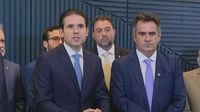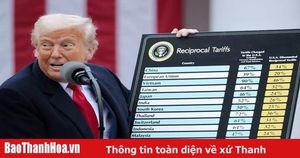On Thursday, April 3, 2025, Senator Ciro Nogueira (PP-PI), the president of the Progressistas party, met with Câmara dos Deputados President Hugo Motta (Republicanos-PB) to present an alternative proposal to the federal government's bill aimed at expanding income tax exemptions for individuals earning up to R$ 5,000 per month. Nogueira emphasized that the proposal seeks to "preserve the good measure" of the federal government while suggesting modifications that could bolster support for small businesses and micro-entrepreneurs.
The alternative text, drafted by Deputy Cláudio Cajado (PP-BA), includes significant changes to the original government proposal. Among the most notable suggestions is the expansion of the cut-off range for dividend taxation from R$ 50,000 to R$ 150,000. This adjustment aims to protect small businesses while still ensuring that higher earners contribute fairly to the tax system.
Nogueira's proposal also includes a linear cut of 2.5% in tax benefits to compensate for the anticipated revenue loss from the expanded exemptions. Notably, exceptions will be made for entities within the Simples Nacional framework, which provides simplified tax regulations for small businesses.
During the meeting, Nogueira remarked, "We propose increasing the Social Contribution on Net Profit (CSLL) by 5% for the approximately 17 large banks that report profits exceeding R$ 1 billion. This increase is intended to help offset the revenue losses associated with the proposed tax exemptions." He clarified that the Simples Nacional would remain unaffected by the proposed tax cuts and exemptions.
The government’s original proposal, presented in March 2025, aims to provide a full income tax exemption for individuals earning up to R$ 5,000 and a partial exemption for those earning between R$ 5,000 and R$ 7,000. The government has also suggested a new tax for individuals earning more than R$ 50,000 per month to help compensate for the revenue loss from the proposed exemptions.
In the current context, the government’s plan aims to alleviate the tax burden on lower-income earners while ensuring that the wealthiest contribute adequately. The proposed structure would exempt approximately 20 million Brazilians from income tax by 2026, significantly increasing the number of individuals who will no longer be taxed.
For those earning between R$ 5,000 and R$ 7,000, a progressive discount on income tax would apply, with a fixed deduction of R$ 1,095.11 and a 15.6% rate applied to taxable income. For instance, an individual earning R$ 5,500 would receive a tax abatement of approximately R$ 234.66, while someone earning R$ 6,500 would see a discount of R$ 78.22.
The proposal has sparked debate among lawmakers, with some expressing concern over the creation of a new tax to offset the revenue loss. The divergence of opinions reflects broader tensions in Congress regarding fiscal policy and tax reform.
As discussions continue, President Hugo Motta is expected to establish a special committee to analyze the proposed legislation. During a meeting with party leaders, Motta confirmed that former Câmara President Arthur Lira (PP-AL) would serve as the rapporteur for the proposal, a decision that has been positively received by government supporters due to Lira's reputation as a skilled negotiator.
Nogueira's proposal has been framed as a means of achieving "greater tax justice," as it aims to balance the tax burden across different income brackets while providing relief to low-income earners. The Progressistas party argues that the adjustments will foster an environment conducive to small business growth and economic stability.
The government's initiative is part of a broader strategy to reform the tax system in Brazil, which has faced criticism for being overly complex and burdensome for small businesses. The proposed changes are expected to be debated extensively in the coming weeks as lawmakers seek to find common ground on fiscal policy.
In summary, Nogueira's alternative proposal aims to enhance the income tax exemption framework while ensuring that higher-income earners contribute fairly to the tax system. The discussions surrounding this proposal reflect ongoing debates within Congress regarding fiscal responsibility, economic growth, and social equity. As the legislative process unfolds, the outcome of these negotiations will have significant implications for Brazil's economic landscape in the years to come.






